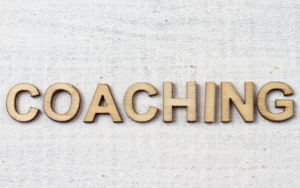I don’t know about you, but August and September were absolutely exhausting for me, and I was trying to figure out why. I decided to re-read my journal starting from July up until now and I realized that I went through some trying times. Although no specific event was monumental, each little thing added together took a lot out of me and I concluded that I have been experiencing Grief.
I always know to expect that there will be a few difficult days for me in September; however, this year seemed a lot more challenging even though I made my mental preparations to get ready for the difficult days in September. I really thought that I could get ahead of these feelings, and for the most part I think I was successful. However, there were some curveballs thrown at me and I wasn’t prepared for them.
What Is Grief?
“Grief is like the ocean; it comes on waves ebbing and flowing. Sometimes the water is calm, and sometimes it is overwhelming. All we can do is learn to swim.” ― Vicki Harrison
Grief is the emotion we experience when we have any loss. A loss is the ending of something. We often associate grief with having to deal with the death of someone. While losing someone does emote grief, the more technical emotion when experiencing a death of someone is bereavement.
Grief can encompass any number of things ranging from finishing a terrific book that you absolutely enjoyed to experiencing the death of someone. The simple explanation is when you have a loss, you may have the emotion of grief.
What you need to learn to do is acknowledge when the grief manifests, identify it as grief, and develop some tools so that you can manage the grief.

Why Is Grief So Hard to Manage?
Grief is difficult because we don’t always know when we are going to experience it, and we don’t always know if we are equipped in the moment to manage it when it shows up. Like the quote above says, “it comes on waves, ebbing and flowing”.
Unfortunately, there is no “How to Guide” to manage grief. There are no right answers when dealing with grief. Every person deals with it differently and how they manage it is perfectly acceptable for them.
We Grieve the Big Stuff
It is quite easy to identify when we lose something monumental like a person, job, or a relationship. We usually take time to grieve and honor that loss and make strategies to “get back to normal.” Friends or professionals are by our side to help us through the loss.
We try to figure out how we are going to get on without that person or job in our life. Often, we tell ourselves, “When one door closes, another one will open and to keep positive.”
As I said earlier, there is no right way to manage grief; however, our strategies seem to be better and more streamlined when we are grieving something big. The same may not be true when we grieve a smaller loss.
Grieving the Smaller Stuff May Pose a Challenge
Quantifying what is large to one person and large to another person can be difficult, but I think we can all agree that losing a friend or loved one is much greater in scale than being sad that you finished a book that you love, or you finish binge-watching a Netflix series.
Identifying the grief experienced after losing a smaller thing is more challenging. You may also tell yourself, “I don’t need to grieve this or worry about this because it isn’t monumental. I’ll get over it.” The thing is, your grief no matter what size it is does need to be processed, otherwise, it will manifest itself in other ways. For me, it was exhaustion.

Tips for Grieving the Smaller Stuff
- Identify and acknowledge that you are feeling grief and don’t quantify the size of the loss.
- Allow yourself to feel the grief and don’t trivialize it because you think that it is too small to have to process.
- Figure out why you are feeling this way and how you can make yourself feel better.
- Journal how you are feeling.
- Practice self-care in whatever way that feels good for you.
- Be positive and know that you will process the grief.
- Don’t get upset if the grief shows up unexpectedly, allow it to happen and process it again.
- Make sure that you are taking care of yourself by getting plenty of sleep, eating well, and limiting toxic behaviors such as drinking.
- Take a break, staycation, or vacation and get yourself back on track.
- Get support from friends or professionals.



